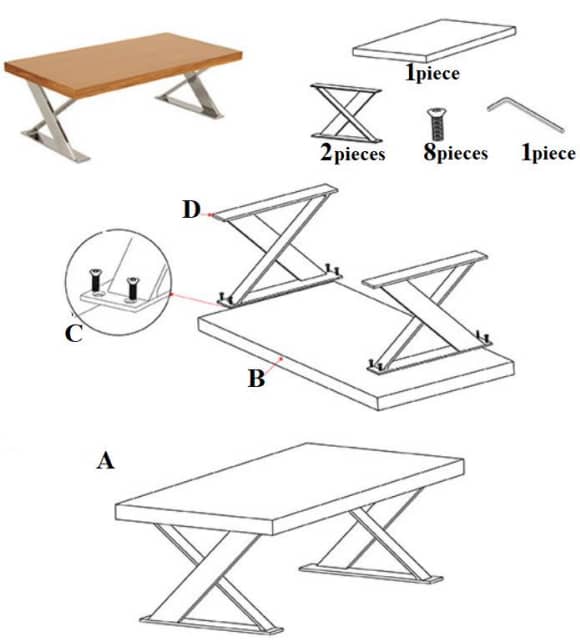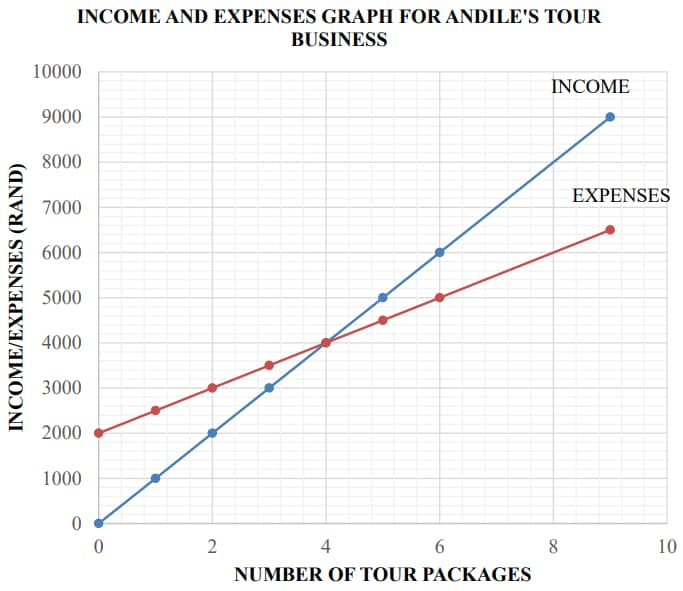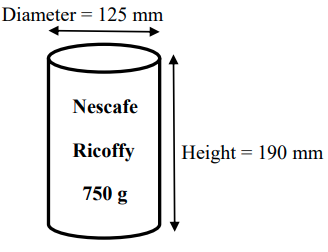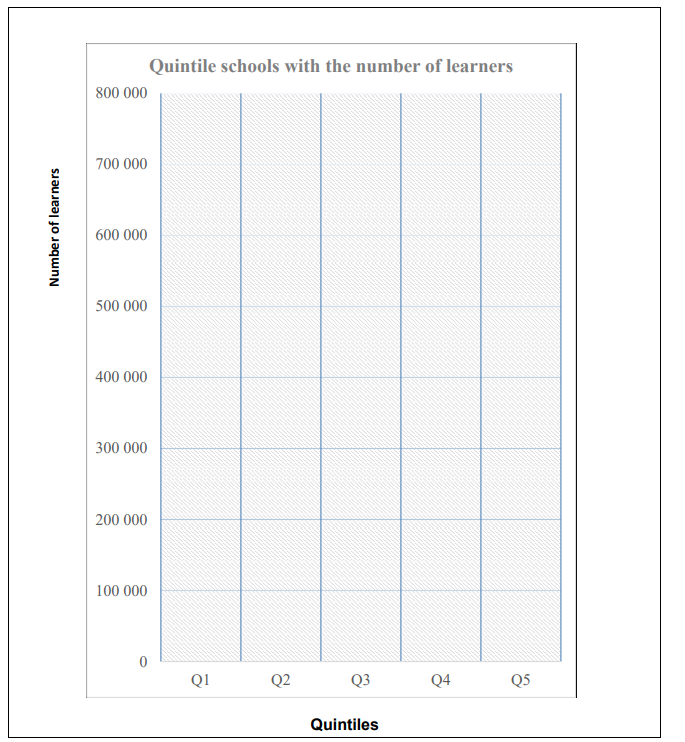MATHEMATICAL LITERACY PAPER 1 GRADE 12 QUESTIONS - NSC PAST PAPERS AND MEMOS SEPTEMBER 2020 PREPARATORY EXAMINATIONS
Share via Whatsapp Join our WhatsApp Group Join our Telegram GroupNATIONAL SENIOR CERTIFICATE
GRADE 12
SEPTEMBER 2020
MATHEMATICAL LITERACY P1
INSTRUCTIONS AND INFORMATION
Read the following instructions carefully before answering the questions.
- This question paper consists of FIVE questions. Answer ALL the questions.
- 2.1 Use the ANSWER SHEET to answer QUESTION 5.3.2.
2.2 Write your NAME and GRADE in the spaces provided on the ANSWER SHEET FOR QUESTION 5.3.2
Hand in the ANSWER SHEET with your ANSWER BOOK. - Number the answers correctly according to the numbering system used in this question paper.
- Maps and diagrams are NOT necessarily drawn to scale, unless stated otherwise.
- Round off ALL final answers according to the context used, unless stated otherwise.
- Indicate units of measurement, where applicable.
- Start EACH question on a NEW page.
- Show ALL calculations clearly.
- Write neatly and legibly.
QUESTION 1
1.1
| A bus left Queenstown at 20:15 on a Saturday evening to Cape Town. The bus stopped 8 times along the journey and each stop lasted 30 minutes for passengers to refresh. The total time for the journey was 13 hours 45 minutes. |
Use the above information to answer the questions that follow.
1.1.1 Calculate the total stopping time in minutes the passengers spent on refreshing. (2)
1.1.2 Determine the time the bus arrived in Cape Town. (2)
1.2
| A shopkeeper sold 10 shirts for a total R1 200 gaining a profit of 25% from the sale. |
1.2.1 Explain the meaning of ‘profit’ in this context. (2)
1.2.2 Calculate the profit made on the sale of 10 shirts. (3)
1.3
| An educator drove 383,5 km from Komani to Port Elizabeth. The car used 28,239 litres of petrol at a cost of R434, 61. |
1.3.1 Calculate the petrol price per litre. (2)
1.3.2 Determine the average distance travelled per litre. (2)
1.3.3 Calculate the cost in Rand per kilometre travelled. (2)
1.3.4 Determine the litres of fuel required for a distance of 175 km at the same rate of consumption. (3)
1.3.5 Calculate the distance a car would travel with petrol of R675,55 at the same rate of consumption. (2)
1.4
| On a map the scale is shown as 50 cm : 100 km. Use this information to answer the questions that follow. |
1.4.1 Write down the given scale in words. (2)
1.4.2 Express the given scale in the form of 1 : … (3)
1.5 TABLE 1 below shows the total population of South Africa and the World from 2017 to 2020.
TABLE 1: TOTAL POPULATION OF SOUTH AFRICA AND WORLD FROM 2017 TO 2020
| Year | Urban population of South Africa | South Africa | World Population |
| 2020 | 39 550 889 | 59 308 690 | 7 794 798 739 |
| 2019 | 38 820 239 | 58 558 270 | 7 713 468 100 |
| 2018 | 38 086 769 | 57 792 518 | 7 631 091 040 |
| 2017 | 37 348 154 | 57 009 756 | 7 547 858 925 |
Use TABLE 1 above to answer the questions that follow.
1.5.1 Write down the year with the lowest world population. (2)
1.5.2 Calculate the total urban population of South Africa from 2018 to 2020. (2)
1.5.3 Calculate the difference between the maximum and minimum of the world population. (3)
[32]
QUESTION 2
Mr Tau plans to renovate his house at a cost of R25 000. He approached his bank for a personal loan. He was provided with a personal loan repayment plan as shown in TABLE 2 below.
NOTE:
| |||||||||||||||||||||||||||||||||||
Use TABLE 2 above to answer the questions that follow.
2.1.1 Determine how much of his own funds Mr Tau will have to use to renovate the house, if he takes a personal loan of R10 000,00. (2)
2.1.2 Mr Tau eventually decides to take a personal loan of R10 000 repayable over 4 years.
Determine:
- The initial administration fee as a percentage of the loan amount (3)
- The total monthly amount that he will have to pay for this loan (2)
- The total interest that he will pay for his loan (4)
2.1.3 Mr Tau paid his first instalment at the end of March 2020. The monthly instalments are payable at the end of each month. Determine the month and year when Mr Tau will pay his last payment. (2)
2.1.4 Mr Tau received a contribution of 250 Canadian Dollars (CAD) from his son who works in Canada.
Calculate the value of the contribution in Rand if the exchange rate at the time, was
1 CAD = R11,0555. (3)
2.2
| TABLE 3 shows South Africa’s inflation rates from June 2017 to June 2019. TABLE 3: SOUTH AFRICA’S INFLATION RATES
|
Use TABLE 3 above to answer the questions that follow.
2.2.1 Explain the meaning of the term ‘inflation’. (2)
2.2.2 Calculate the price of brown bread in June 2019 if the price was R12,24 in June 2017. (4)
2.3
Andile runs a travel agency and deals in tour packages. A Mathematical Literacy student drew an Income and Expense graph shown below to help Andile determine the break-even point for his business. |
Use the graph and information above to answer the questions below.
2.3.1 Determine the number of tour packages at the break-even point. (2)
2.3.2 Determine the income if 8 tour packages are sold. (3)
2.3.3 Income received is VAT (Value Added Tax) exclusive. Determine the VAT amount payable if 6 tour packages are sold. Use VAT = 15%. (3)
2.3.4 Use your answer in QUESTION 2.2.3 to calculate the profit made from the 6 tour packages sold.
Use the formula: Profit = Income – Expenses – VAT payable (3)
2.3.5 Determine the number of tour packages that were sold if the expenses are R1 500 more than the income. (2)
2.4
| John works for a company that makes bricks. He is paid a gross salary of R12 500 per month. John and his employer contribute 1% each towards UIF every month. |
2.4.1 What does the acronym ‘UIF’ stands for? (2)
2.4.2 Calculate the total UIF contribution by both employee and employer for the period of one year. (3)
[40]
QUESTION 3
3.1
Lethabo baked malva pudding for his family and friends every Sunday for the first quarter of 2020. Study the ingredients below and answer the questions that follow. MALVA PUDDING RECIPE
|
3.1.1 Calculate the amount of salt used to bake malva pudding for three dozen of people. (4)
3.1.2 Calculate, in hours, the amount of time spent by Lethabo to prepare and cook the malva pudding for his family and friends in the first quarter of the year. (4)
3.1.3 Determine the amount of flour (in kilogram) Lethabo will use to bake malva pudding for 64 Grade 12 learners for a matric dance. (5)
3.1.4 Convert temperature of the pre-heated oven to degrees Fahrenheit (℉).
You may use the following formula:
℉ = (9/5 × °C) + 32 (3)
3.2
Lethabo bought a 750 g tin of Nescafe Ricoffy for his family during lockdown. Study the diagram below and answer the questions that follow.
|
3.2.1 Write down the dimension of the radius. (2)
3.2.2 Explain the meaning of the term ‘volume’. (2)
3.2.3 Calculate the volume (in cm3) of the cylindrical Nescafe Ricoffy coffee tin.
You may use the following formula:
Volume = π × radius × radius × height, where π = 3,142 (3)
[23]
QUESTION 4
4.1
| ANNEXURE A shows a floor plan of the Victoria Wharf Shopping Centre in Cape Town that Anathi visited in June 2020. |
Use the floor plan in ANNEXURE A and answer the questions that follow.
4.1.1 Write down the number of entrances that can be found on the lower level of the shopping centre. (2)
4.1.2 Determine how many shops can be found in the shopping centre. (2)
4.1.3 Determine the probability of randomly selecting a shop where an even number was used to label the shop. Give your final answer to the nearest percentage. (4)
4.1.4 From Woolworths, Anathi turned right, skipped three shops on her right and entered the next shop. Write the number of the shop that she entered. (2)
4.1.5 Give the general direction of MRP from Clicks. (2)
4.1.6 Name the shop that occupies the largest area. (2)
4.1.7 Identify the entrance number where there will be no shops on your right-hand side as you enter the shopping centre. (2)
4.2
The diagrams below show the pieces that can be assembled to make a table that Anathi bought.  [Source: woodworkpdfplans.webfc2.com] |
Study the diagram above and answer the questions that follow.
4.2.1 Determine the number of pieces needed to assemble this table. (2)
4.2.2 Arrange the given steps (using A to D) to show Anathi how this table can be assembled. (4)
[22]
QUESTION 5
5.1 The recorded number of learners, the number of schools and the number of educators in all districts of the Eastern Cape Department of Education for the year 2020 are shown below:
| DISTRICT | NUMBER OF LEARNERS | NUMBER OF SCHOOLS | NUMBER OF EDUCATORS |
| Alfred Nzo East | 105 817 | 225 | 3155 |
| Alfred Nzo West | 168 899 | 599 | 5019 |
| Amathole East | 154 464 | 733 | 4585 |
| Amathole West | 78 820 | 411 | 2498 |
| Buffalo City | 198 738 | 459 | 5 537 |
| Chris Hani East | 111 506 | 489 | 3 545 |
| Chris Hani West | 119 405 | 398 | 3 469 |
| Joe Gqabi | 94 876 | 327 | 2 876 |
| Nelson Mandela Metro | 244 357 | 363 | 6 664 |
| OR Tambo Coastal | 260 817 | 647 | 7 520 |
| OR Tambo Inland | 201 907 | 619 | 5 736 |
| Sarah Baartman | 98 701 | 254 | 2 637 |
[Adapted from ECDoE supplied dataset]
Use the information above to answer the questions that follow.
5.1.1 Write down the total number of schools to the nearest thousand. (2)
5.1.2 Calculate the mean number of learners from all the districts. (3)
5.1.3 Calculate the average number of learners that an educator is responsible for in the Joe Gqabi District. (3)
5.1.4 Identify the district with the most schools. (2)
5.1.5 Calculate the range number of educators in the districts. (3)
5.1.6 Arrange the number of schools in descending order. (2)
5.1.7 Determine the number of male educators if 71,9% of educators are female. (4)
5.1.8 Determine the probability (in simplified form) of randomly selecting a school in the Eastern Cape that is from the OR Tambo Districts. (3)
5.2 The Mathematical Literacy diagnostic report of 2019 on the overall achievement rates in Mathematical Literacy results from 2017 to 2019 are shown in TABLE 4 below.
TABLE 4: OVERALL ACHIEVEMENT RATES IN MATHEMATICAL LITERACY FROM 2017 TO 2019
| Year | Number wrote | Number achieved at 30% and above | % achieved at 30% and above | Number achieved at 40% and above | % achieved at 40% and above |
| 2017 | 313 030 | 231 230 | 73,9 | 140 991 | 45,0 |
| 2018 | 294 204 | 213 225 | P | 133 568 | 45,4 |
| 2019 | 298 607 | 240 816 | 80,6 | 162 877 | 54,5 |
[Adapted from DBE supplied dataset, 2019]
Use the above information to answer the following questions.
5.2.1 Calculate the value of P, the percentage achieved at 30% and above in 2018. (3)
5.2.2 Calculate the difference in percentage (%) of learners who achieved at 40% and above in 2017 and 2019. (3)
5.3 Schools are categorised according to quintiles. Study the information on the number of learners in each quintile that is transported by the Department of Education in the Eastern Cape Province.
| Quintiles | Number of learners |
| Q1 | 550 684 |
| Q2 | 738 340 |
| Q3 | 52 185 |
| Q4 | 333 251 |
| Q5 | 80 369 |
Use the information above and answer the questions that follow.
5.3.1 Write down the median value for the number of learners according to the quintiles. (2)
5.3.2 On ANSWER SHEET 1, draw a bar graph showing the number of learners per arrangement of quintile numbers from 1 to 5. (3)
[33]
TOTAL: 150
ANSWER SHEET
QUESTION 5.3.2


